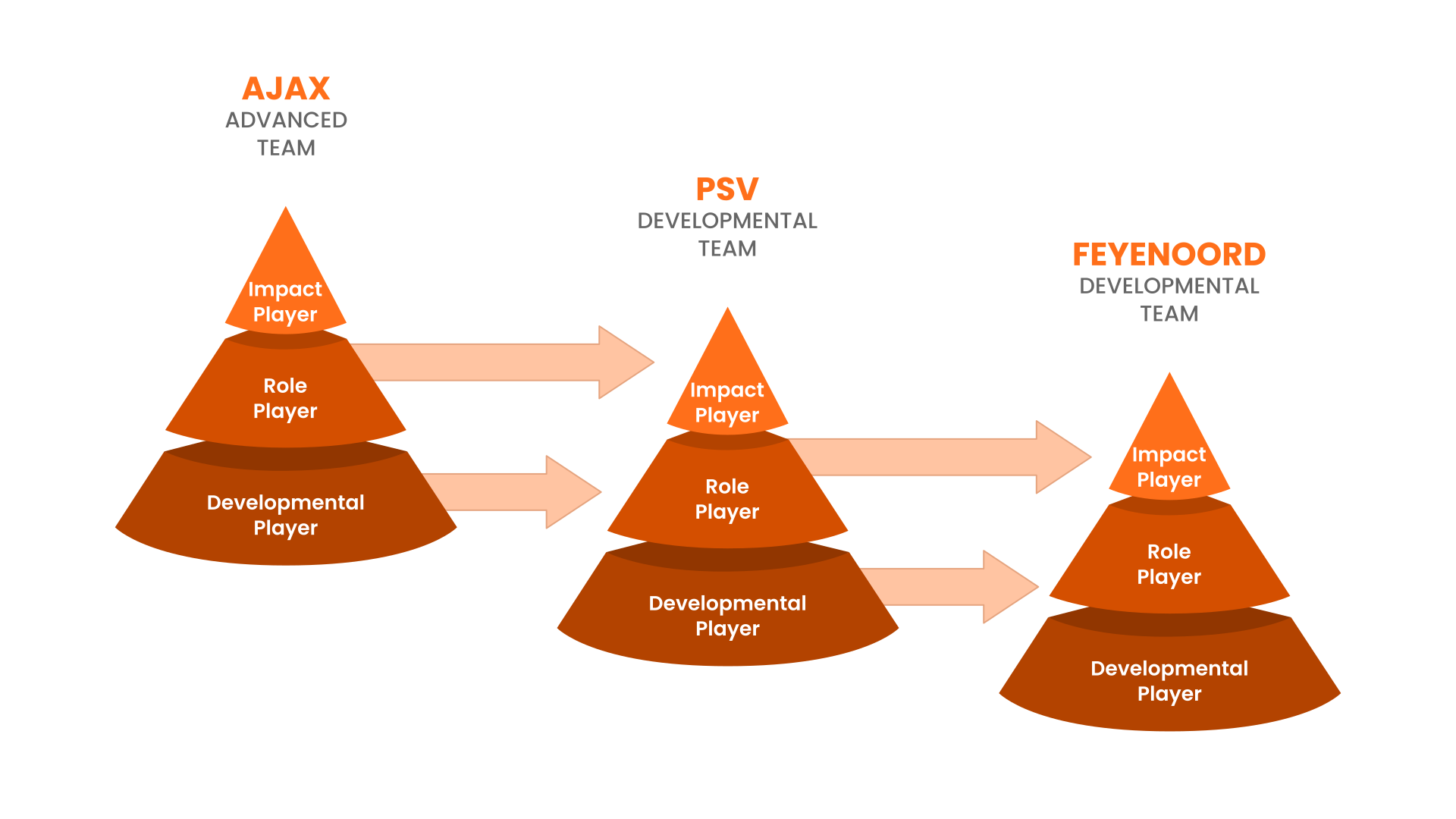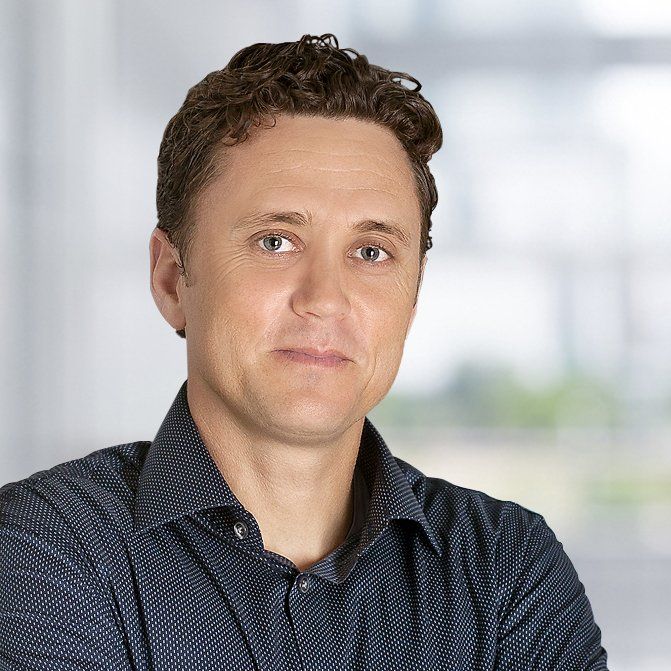The Squad System
The Squad System - A better way to Enjoy, Develop & Compete
As a parent, we all want our kids to be in the best environment to help them succeed, especially when it comes to sports. But the word "success", can mean very different things to different people, especially when you throw a little pride and ego in the mix.
So what do you really want for your child when it comes to play soccer?
I've asked this question to 100's of parents over the years and I almost never hear them say, "I want them to play pro at all cost".
It's usually...
- "I want them to enjoy themselves."
- "I want them to develop and reach their potential."
- "It would be great if they could develop to play at the HS level or maybe even college."
- "I want them to experience and overcome adversity and learn life lessons by playing sports."
So why do parents desire to place their kids on the highest-ranked teams and leagues?
The reason is that parents associate success with the level of competition and believe the higher competition and pressure, the greater the development and chances of success. Not only could this be further from the truth, but in many cases, parents don't realize that this will stunt their kid's potential as a player. Please don't take my word for it. Christin Pulisic, the most talented American player in the history of US Soccer, opted to play for a less competitive team within his area. Here's the excerpt from the article:
Christian spurned the academy team of the Philadelphia Union, a unit consistently more talent-laden and successful than the PA Classics.
"When you are the best player on your team but your team is not as good, it means you handle the ball more, you have to do more to carry your team and in the process, you are developing your game," says Richie Williams, an assistant coach with the U.S. men's national team who coached Christian, then 15, at the U17 residency program in Bradenton and in the 2015 U17 World Cup. "If it is a loaded team, that same player might be identified as a role player and never develop those skills."
~ https://bleacherreport.com/articles/2713937-the-christian-pulisic-blueprint
Often, parents want the prestige of playing in "the elite" league or team so they can feel special. The players usually don't care.
Growing up in Holland, I started playing soccer when I was 10 years old, which is really late so I was behind from the get-go. On top of this, I was significantly smaller than my peers. (Still am today but that's a different story.) Because I was behind, I played for the Developmental Team within my club for many years but because I got on my bike and took myself to practices, my parents were never around and I really didn't care for which team I played as long as I played and had the chance to compete and develop.
The key word above is compete.
So let's break this down.
What does competition mean?
When you play on a team that loses 10-0 every game, you're not competing. Likewise, when you're on a team that wins 10-0 and you're scoring 7 out of the 10 goals, you're not competing. On the losing team, it's too competitive, and on the winning team, there's not enough competition. The goal is to find a balance between being challenged (so you develop) but not over-challenged, where there is not success because that takes the fun out of it. This is what competing means. Ideally, you're playing on a team with players who challenge you but you get lots of opportunities to play and the team is competing in a league where you win at least half your games. Even when you lose a game 2-1, you can still be competing.
So when we have multiple teams within an age group, for which team should your child play?
The framework we use to determine where a player fits best is based on 3 categories to evaluate a player's level of competitiveness.
Are they a:
- Impact Player
- Role Player
- Developmental Player
IMPACT PLAYER
An Impact Player is a player who changes the game. They're preventing goals, maintaining possession 60%-70%+ of the time, creating chances, scoring goals, preventing goals, winning 50/50 challenges, and beating opponents to the ball. These players usually play 75%-100% of the game.
ROLE PLAYER
A Role Player is a player who can enter the game and support the team. They usually maintaining possession 50% of the time, completing passes and won't impact the result of the game positively or negatively but will do a decent job of playing for the team. Usually, these players play 50% of the game. These players aim to improve and enter the impact player zone.
DEVELOPMENTAL PLAYER
Developmental Players are players who are behind or have fallen behind in their skill level and speed of play. They get most of their playing time in friendly scrimmages, tournament games, or league games that are not competitive. In close games, they might not play as much because they are not ready and it's unfair to punish the team if a player has yet to reach the role player status. However, they deserve opportunities to prove themselves, but patience and hard work are required.
As the image below displays, a Developmental Player on the Advanced Team, might be better off playing as a Role Player on the Developmental Team. Or an Impact Player on the Developmental Team might be better off staying on the team vs being moved up to the more competitive team where they might only be a Role Player.

PLAYERS DEVELOP AT DIFFERENT RATES
The key to remember is that it doesn't matter where you start but how and where you finish. Over my 20 years of coaching, I've seen so many Developmental Players turn into Impact Players and the reverse. In my case, I played for the Developmental Team for many years. I was a late bloomer, physically, mentally, technically and socially. Because I was on the Developmental Team, I played more and had the opportunity to express myself and experiment more freely with less pressure, allowing me to enjoy the game more. And when the light finally came on, I transitioned from being a Role Player to being an Impact Player on the Developmental Team and caught the eye of the Advanced Team. I got promoted to the Advanced Team at 15 and on the Advanced Team I started out as a Role Player but quickly advanced to becoming an Impact Player there also and eventually overtook all my peers and was called up to the 1st Adult Team at my club at age 17.
Had I been placed on the Advanced Team too early, the level of competitiveness would have overwhelmed me and I might not have had the freedom to develop at my own pace. I might not have enjoyed it as much due to the pressure and could have lost interest altogether.
Christian Pulisic chose to play on a less competitive team during his youth playing days and was able to play with more freedom and creativity, which allowed his game to develop to where it is today.
However, Christian also moved from Dortmund, where he was an Impact Player, to Chelsea, where his career has stagnated. He's now mostly considered a Role Player on Chelsea and not really finding the joys of playing like he was used to. I've seen this time and time again with players I've personally helped develop to become Impact Players. Then they bounce to play for teams competing in higher divisions only to find that they now are Role Players on those teams and their growth and careers stagnate. They lose the joys they experienced as Impact Players and their momentum stalls. More competition does not always mean more success because playtime, playing style, playing position, coaching philosophy and many factors change significantly, influencing the environment for players' potential.
A RISING TIDE LIFTS ALL BOATS
At Dutch FC we want to help all players reach their maximum potential and for this reason, we build a stair-step level of 2-3 teams so players can move up and down the level of competition based on what might be best for their growth. Coaches might keep certain players on the Developmental Team as Impact Players so they get more playing time even though they could be moved up to the Advanced Team but play less as Role Player.
All teams benefit from this system. The Advanced Team will likely compete in a higher-level league than the Developmental Team which means that the Advanced Team will likely attract competitive players to try out for this team. Some of these players might not be ready to compete at that level and would benefit by playing as an Impact Player on one of the Developmental Teams making these teams stronger at the same time. The Advanced Team benefits from this system because as players become ready to compete at a higher level, they can bump up to the Advanced Team to strengthen them. This creates a win/win for the age group and the entire age group grows stronger and more competitive.
Collectively, this is what we call the "The Squad System". This approach to organizing youth teams is standard across clubs within the Netherlands that aids in helping individual players reach their potential, for which the Dutch youth development system is world-renowned. Many clubs in North Texas have a similar approach however, their objective is not always in the best interest player development but rather to generate revenue increased revenue. At Dutch FC, our club dues are on average about $1000 less than most comparable programs. And because. we're a non-profit, we focus more of our efforts on quality rather than quantity.
The Squad System requires patience and faith from the parents and players. It also requires teamwork between coaches to work together to make the system work. We're excited to adopt this system and apply it to our community here in Frisco, Texas.


